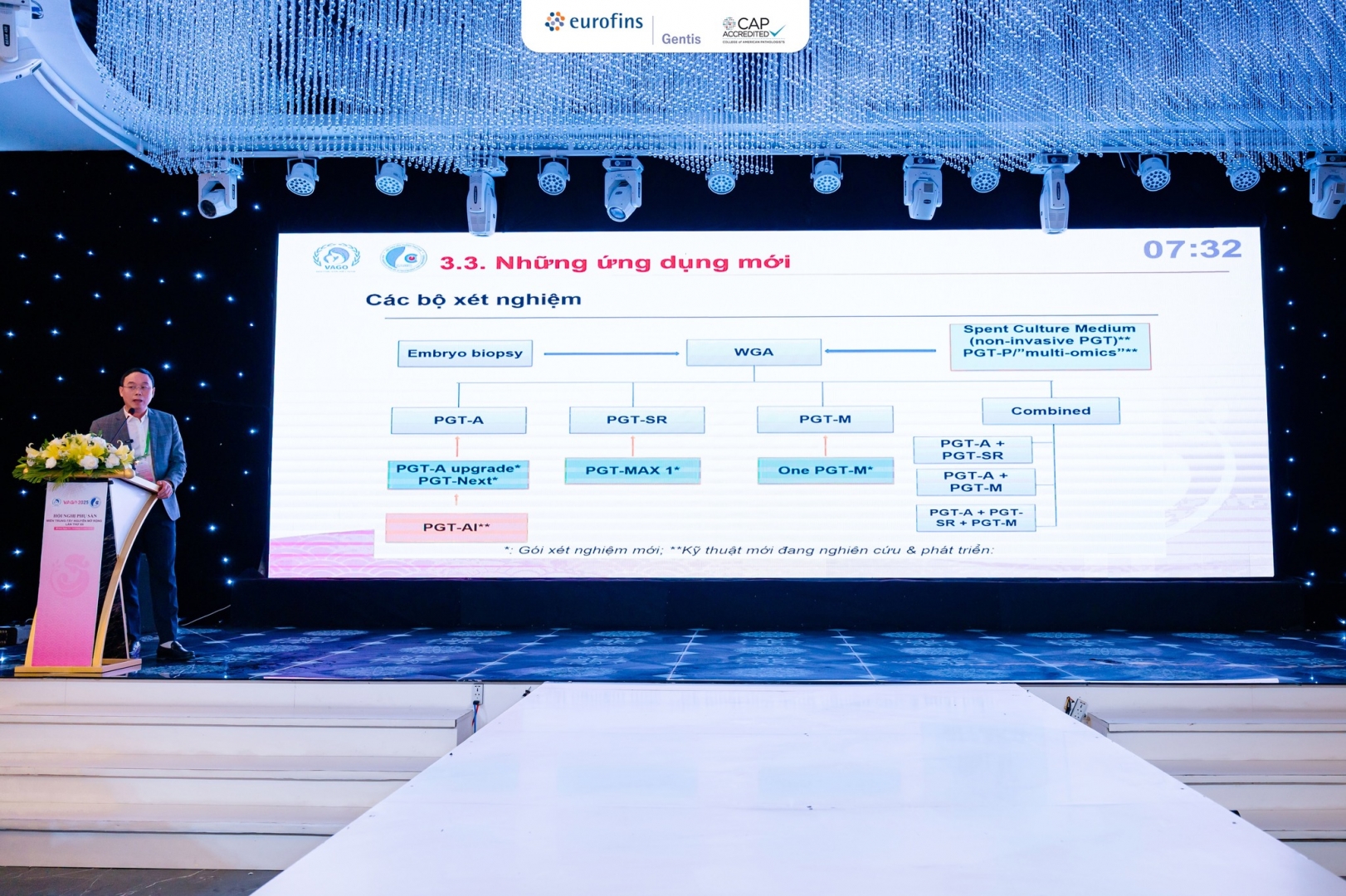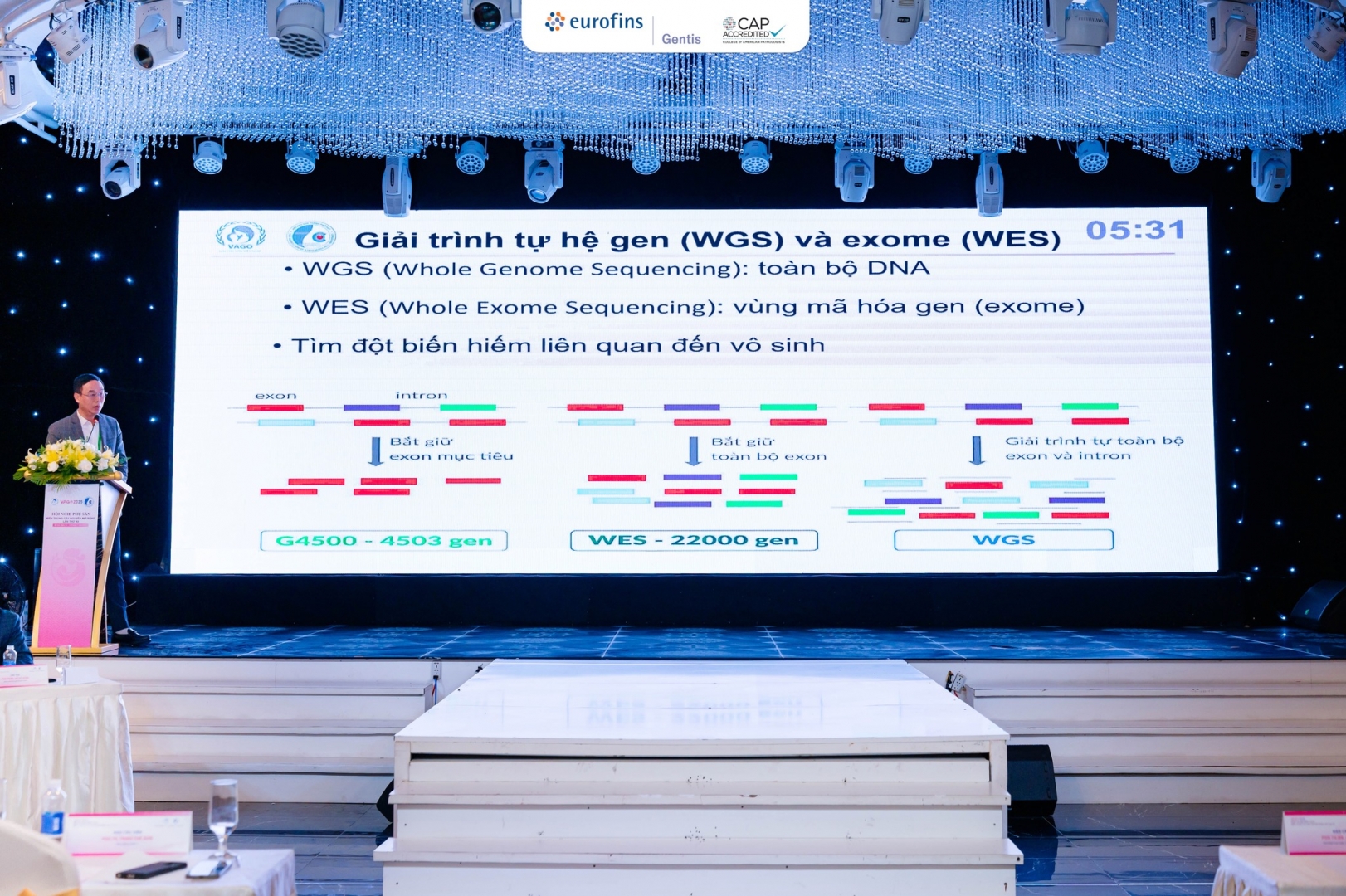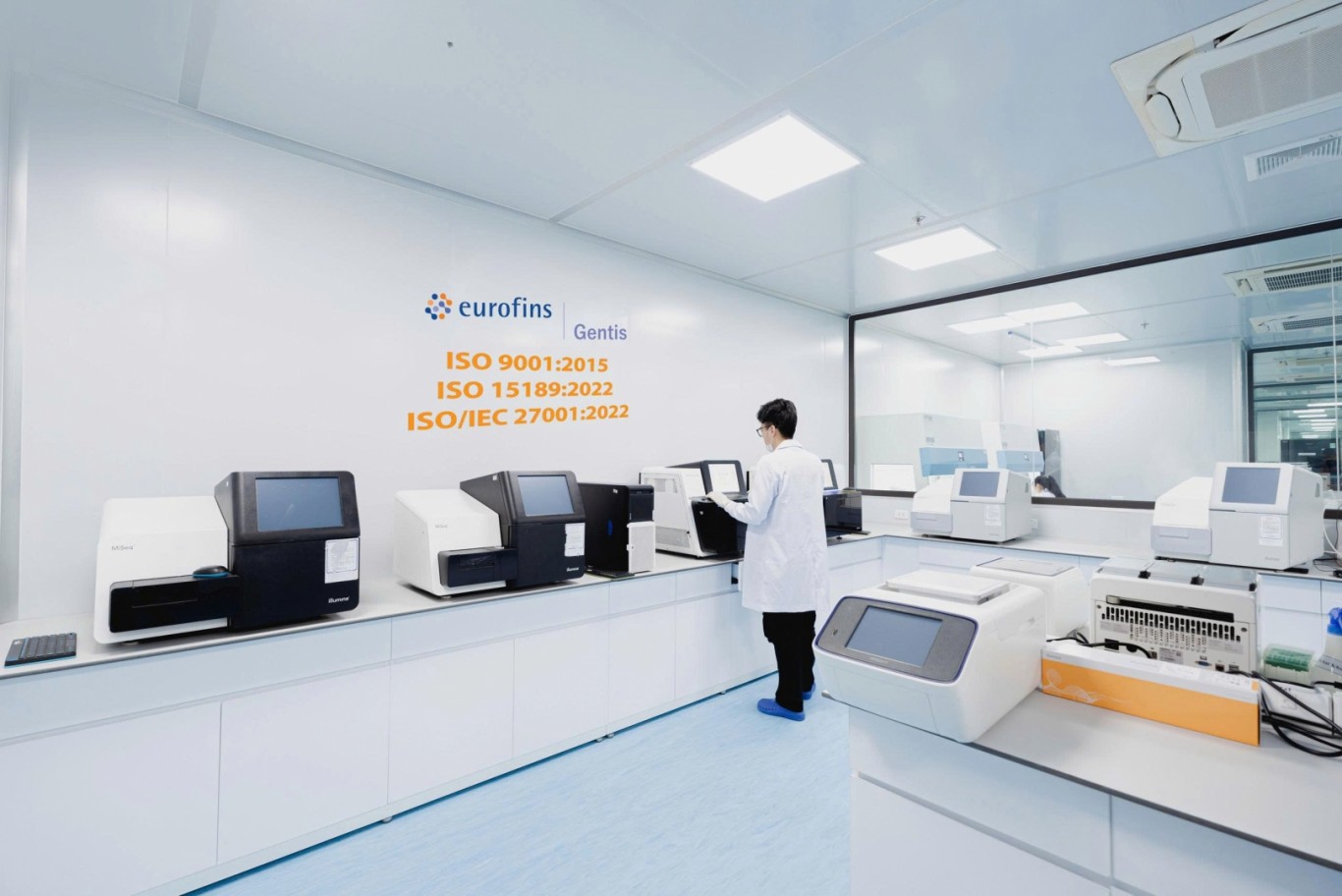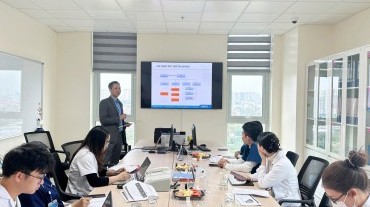From fundamental techniques such as in vitro fertilization, medicine has continuously achieved remarkable progress. One of the most significant milestones is the application of genetics in assisted reproduction—allowing doctors not only to create embryos but also to select the healthiest ones, thereby increasing the chances of success.

According to Assoc. Prof. Dr. Trinh The Son – Director of the Military Clinical Embryology Institute, Vietnam Military Medical Academy – genetics now plays a pivotal role in the field of assisted reproduction. Through genetic and chromosomal analyses, doctors can identify the root causes of infertility at the deepest biological levels, detecting chromosomal abnormalities such as Klinefelter syndrome, Turner syndrome, or AZF microdeletions in men, as well as gene mutations that may lead to vas deferens obstruction or premature ovarian failure. More importantly, genetic information enables personalized treatment regimens tailored to each patient’s genetic characteristics.
One of the most prominent achievements in this field is preimplantation genetic testing (PGT). This technique allows doctors to select embryos with normal chromosomal makeup and eliminate those carrying abnormalities that may lead to miscarriage or genetic disorders. PGT includes several types such as PGT-A, PGT-M, and PGT-SR. PGT-A helps detect abnormalities in chromosome numbers, such as Down syndrome; PGT-M is used for couples carrying genetic diseases like Thalassemia or cystic fibrosis to ensure only embryos without the disease-causing gene are transferred; while PGT-SR helps detect structural chromosomal abnormalities such as translocations or inversions, proving particularly valuable in cases of recurrent miscarriage or unexplained infertility.
Beyond these, scientists are researching and applying non-invasive screening methods, notably niPGT – a technique analyzing cell-free DNA in embryo culture media, eliminating the need for embryo biopsy and improving embryo safety during development.
In addition, the emergence of advanced tests such as PGT NEXT, PGT UPGRADE, WES, and WGS is significantly improving success rates in assisted reproduction. PGT NEXT enables comprehensive chromosomal assessment of embryos, detecting aneuploidy, mono- and polyploidy, as well as structural abnormalities, while using SNP analysis to prevent sample mix-ups and accurately identify healthy diploid embryos. PGT UPGRADE goes a step further by detecting embryos carrying balanced translocations inherited from parents—a common cause of recurrent miscarriage—allowing doctors to select embryos without such abnormalities and improving the chances of a healthy pregnancy for couples with chromosomal translocations.

Meanwhile, WES (whole exome sequencing) and WGS (whole genome sequencing) open the door to identifying rare, complex, or previously unknown mutations related to infertility. WES examines more than 22,000 coding genes—where most disease-causing variants are concentrated—while WGS provides the most comprehensive genomic overview, helping doctors uncover deep-seated causes in difficult cases, thereby personalizing treatment plans and optimizing patient success rates.

Artificial intelligence and big data analytics are also becoming powerful tools for selecting embryos with the highest developmental potential. AI systems can analyze thousands of data points on embryo morphology and development speed to suggest the healthiest embryo, significantly increasing success rates for infertile couples.
Genetics not only enhances the effectiveness of infertility treatment but also aims toward selecting healthy embryos, ensuring precise treatment, and preventing genetic diseases. Assoc. Prof. Dr. Trinh The Son emphasizes that it is essential to approach these technologies with humanity and responsibility so that science truly serves human happiness.
On the journey toward parenthood, each advancement in genetic medicine is a beacon of hope—illuminating the dreams of millions of infertile families and bringing them closer to the “miracle of life.”











